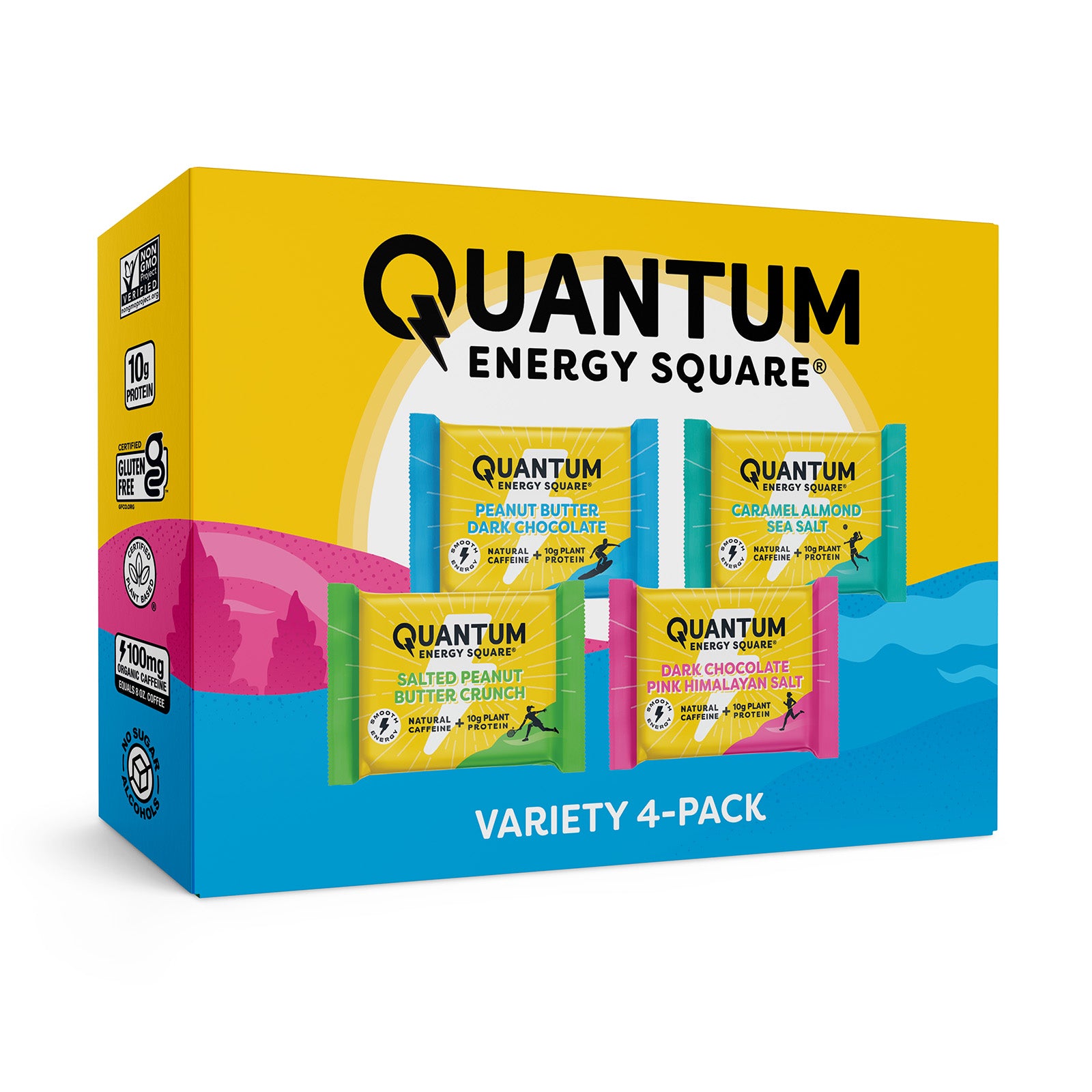Protein comes from a variety of food sources including nuts, seeds, animal meat, eggs, dairy products and a wide variety of supplemental powders. While all forms of protein can provide a variety of amino acids, the building block of tissue in your body, there are additional nutrients to take into account when choosing the protein supplement that is best for you. Here’s the low down on the benefits, downsides and everything in between regarding protein supplements.
What is plant-based protein?
Contrary to popular belief, there are a number of plants that contain protein. Nuts and seeds, including foods like chia seeds; soy-based items, like tofu and edamame; and peas are common sources of plant protein. In fact, Quantum Energy Squares utilizes protein from a few different plants, including a variety of seeds and nuts, and peas. As you can see, there are plenty of ways to get protein from plants and there may actually be some added benefit to choosing these sources over animal-based options.
Is animal or plant protein better?
For many people, plant-based protein digests easier than animal options, like whey protein. Additionally, these plant sources of protein often come along with more antioxidants and fiber than their animal-based counterparts. Antioxidants help to keep your cells healthy and fiber can improve digestive regularity and even help manage blood cholesterol levels. In most cases, we should aim to consume as many antioxidants as possible from our food choices and make sure to eat several sources of fiber-rich foods each day.
One of the other up-sides to plant protein is that it is safe for those with allergies to dairy products, like whey protein, and is perfect for someone following a vegan diet. While animal protein supplements, like whey, casein, and collagen are lacking these benefits, it may have one advantage over plant-based options. Whey protein, in particular, is thought to digest quicker and yield more muscle-building benefits than plant protein, although research indicates the advantage is likely minimal. All-in-all, both sources of protein can provide essential nutrients, like amino acids, but plant-options are more likely to provide a wider array of micronutrients and are known to be easier on the digestive tract.
Which is right for you?
Both plant and animal-based protein sources are viable options, and when choosing which is right for you, it comes down to the benefits you want to prioritize. If muscle gain is your main goal, whey protein may have a slight edge; however, if you have dietary restrictions or are prioritizing the health benefits that plant protein can provide, that may be the best route for you. At the end of the day, a wide variety of food choices that deliver an array of nutrients, including protein, is ideal for optimal health.





